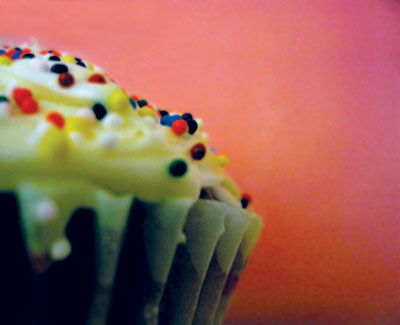All Nonfiction
- Bullying
- Books
- Academic
- Author Interviews
- Celebrity interviews
- College Articles
- College Essays
- Educator of the Year
- Heroes
- Interviews
- Memoir
- Personal Experience
- Sports
- Travel & Culture
All Opinions
- Bullying
- Current Events / Politics
- Discrimination
- Drugs / Alcohol / Smoking
- Entertainment / Celebrities
- Environment
- Love / Relationships
- Movies / Music / TV
- Pop Culture / Trends
- School / College
- Social Issues / Civics
- Spirituality / Religion
- Sports / Hobbies
All Hot Topics
- Bullying
- Community Service
- Environment
- Health
- Letters to the Editor
- Pride & Prejudice
- What Matters
- Back
Summer Guide
- Program Links
- Program Reviews
- Back
College Guide
- College Links
- College Reviews
- College Essays
- College Articles
- Back
Why I Don't Need Courgetti
Britain has a weight issue. It’s not something we can ignore and in writing this I do not want to make little of the struggle that thousands are facing in order to minimise their health risks by cutting down on their intake. I do however, get a little sick of how one-sided coverage of this weight issue seems to be. Whilst I appreciate that obesity is a rising and worrying trend, the demonization of carbs, fats and sugars is a completely unhelpful way to tackle it. Not only this, but general dietary advice seems to be solely created for the purpose of people who are trying to lose weight with little consideration for those who are striving to avoid a calorie deficit. There is no disputing the fact that a diet of chip butties and doughnuts is not a healthy one but neither is the one I was following three years ago when I had managed to convince myself that 15g of bran flakes, a handful of grapes, half a slice of bread, an apple, two rich tea biscuits, a dessertspoonful of rice, two tomatoes, a quarter tin of butterbeans and a yoghurt was a sufficiently nourishing daily intake for a five-foot-five seventeen-year-old girl.
As someone in recovery from a severe eating disorder, the constant bombardments of ‘good’ and ‘clean’ and ‘healthy’ ideals are particularly wearing (although they no longer distress me the way they would have in the very depths of my illness) and also worrying because I am uncomfortably aware that so many people are in danger of embarking in an ever-more-obsessive pursuit of these ideals. I am not only writing about eating disorders, however, I am writing about all those who – like a close friend who is resigned to the fact that she will be putting full fat milk on her porridge every morning for the rest of her life – simply struggle to gain or maintain a healthy weight. We do not need to be told about the virtues of cauliflower rice or the satanic status of white bread. We do not need to be told about the ‘naughtiness’ of chocolate or the need to measure cheese with our thumbs. We do not need the public health announcements that children should only be fed sugar free, low-fat yoghurts.
People are very quick to dismiss this sort of struggle with the question “why can’t you just eat more?” or even to mock it with the good old“oh poor you, it must be soo hard to have to eat that extra sausage roll.”
You know what? Sometimes it is.
Our developed world is a world that is largely targeting the obese market and so our supermarket shelves are lined with products that are crowing about their ‘skinny’ properties and our magazines are full of advice on how to obtain that elusive ‘summer body’. For me, being bikini ready would involve at least 6kg of weight gain, something I’m not going to find tips for in the local food store or the media coverage. As far as I have found (in the mainstream world outside of medical refeeding programs) there are no weight-gain recommendation plans that are not for body-builders. It is not easy to gain weight and it is not easy to lose weight, but at least with the latter, you’re swimming with the current rather than against it.
As my eating disorder lingers, I find I still cling to rigidity and ideas of ‘healthiness’ and these negative thought patterns are only exacerbated by the frequent updates to the lists of foods we ‘shouldn’t’ be eating.
Other things that I find hard are the assumptions: the surprise I am met with when it is revealed that I eat three solid meals and three snacks a day, the expectation that I must be avoiding food and the ensuing fascination that therefore comes when I order a hot chocolate, the stupidity of comments such as “you’re so tiny, I wish I looked like you” and the widespread perception that the whole western world should be striving to down-size their portions.
As part of my recovery has involved relearning to eat normal amounts of things I have been provided with measurement guidelines and, with some, unhealthy, anxiety-driven compulsivity I now fixate upon giving myself EXACTLY 200ml of this, 50g of that, 200g of something else – terrified of giving myself the ‘wrong’ amount. Today we have been given a new set of food rules by the British Nutrition Foundation based on fists and fingers and, you know what, I think it’s time we all stopped caring so much. My mum is one of the healthiest people I know; she weighs some things and does others by eye, she uses a variety of ingredients from all different food groups, she eats a slab of cake every afternoon, she never bothers with the low fat options and if her vegetable curry comes out huge she says “I hope you’re hungry” and tucks in.

Similar Articles
JOIN THE DISCUSSION
This article has 0 comments.
